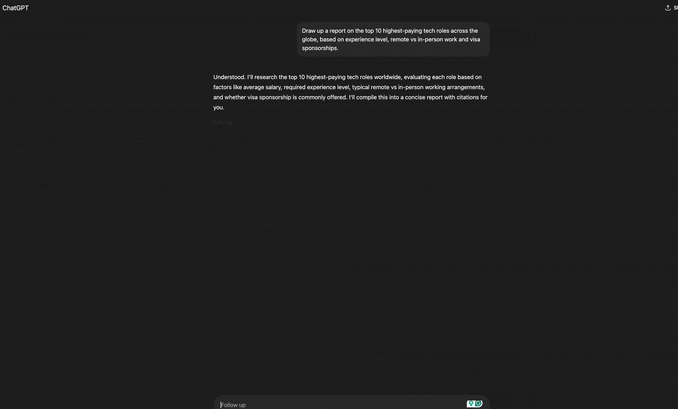Agentic AI and the Rise of Outcome Engineering

With how quickly the AI industry is changing, it’s little wonder that most of us feel like we’re always playing catch-up. It wasn’t all that long ago that prompt engineering was all you needed to take full advantage of the best AI models. And for the most part, it still is. Every professional should know how to optimize prompts, layer context, and guide AI models toward a desired output.
But prompt engineering alone is not enough to prepare you for what’s next. Why? Agentic AI is the future, and it’ll change the way we use LLMs.
What is Agentic AI?
Agentic AI refers to AI Systems that can act or make decisions autonomously to achieve a goal. Rather than waiting for a prompt and giving a one-off response, an AI agent can plan, initiate, and complete multi-step tasks in a dynamic environment with minimal oversight. These agents operate with a goal-oriented mindset: they can adjust their approach based on new information and learn from what happens, much like a human problem-solver would. In practical terms, an agentic AI might string together a series of actions (like calling APIs, browsing the web, running code, etc.) to accomplish a complex task.
Say you wanted a report on the top 10 best-paying jobs in the tech industry—broken down by region, remote vs. in-person roles, and visa sponsorship availability—shared in XLS format for export to Excel. With regular AI models and prompt engineering, you’d need multiple prompts and an extensive feedback loop. But with Agentic AI, you can skip the steps and just ask for what you want.
The image below shows ChatGPT’s newly released “agent” tool in action.
With a single prompt, the model searches multiple sites for relevant information, cross-references job data against location, visa filters, and work type, and compiles the results—all within its own “desktop,” providing real-time updates on each step it takes to deliver your desired outcome: an actionable, export-ready report.
Exciting, isn’t it?
Well, this concept isn’t entirely new – in robotics and software, autonomous agents have been studied for years – but applying it to modern AI (like large language models) is what’s turning heads now.
Which brings us to our next point.
How Can You Take Advantage of Agentic AI as a Writer/Blogger?
Automate Research and Fact Checking
Agentic AI can take the grunt work out of content research. Instead of hopping between tabs and chasing sources, you can assign your agent a clear research goal: “Find the five most recent studies on climate tech adoption in Africa and highlight any stats or expert quotes.” The AI agent can crawl trusted sources, extract relevant data, and even flag inconsistencies, all before you write a single paragraph. For fact-checking, agents can compare your draft’s claims against real-time sources, alerting you to outdated info or even broken citations.
Ready to try it out?
Let an AI agent handle the research and fact-checking for you next HackerNoon Top Story
Source Monitoring and Trend Detection
You can set up an AI agent to monitor trusted publications, blogs, preprint servers, or social platforms for breaking stories or trending topics in your niche. Rather than checking feeds manually, your agent can scan for keywords, summarize headlines, and send you a daily or weekly digest of what’s gaining traction. Want to know when “agentic AI” hits mainstream coverage or a new paper drops on open-source LLMs? Your agent can flag it in real-time, keeping you ahead of the curve and helping you draft timely, relevant content before the noise kicks in.
Build and Keep Track of Your Content Calendar
In a writer’s note from August last year, we highlighted just how important a content calendar is to anyone (or business) looking to maintain a consistent publishing schedule. Today, an AI agent can handle most of the work for you. It can plan, schedule, and adjust your content calendar dynamically. Give it your key themes, publishing cadence, and deadlines, and it can generate topic ideas, assign them dates, and nudge you when it’s time to write. Need to shift things around? Ask your agent to reorganize the calendar based on new priorities, holidays, or team feedback. Integrated with tools like Notion, Trello, or Google Calendar, your AI can even create tasks, send reminders, and mark items as “in progress” or “done” based on your writing progress.
Writers don’t need to rely on AI to write for them, but they can rely on AI agents to take care of everything else. From tracking trends to automating calendars and distributing content, agentic AI frees up your mental bandwidth so you can focus on the part that matters most: your ideas.
Your competitive edge, as AI agents become more capable, will come from embracing outcome engineering. Writers who do so will be better positioned to scale their craft, stay relevant, and keep their voice at the forefront, no matter how noisy the internet gets.
Until next time,
HackerNoon Team

